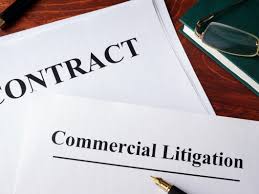
Personal Injury
Personal injury law has changed dramatically over the years. If you have been injured as a result of the negligence of another, you'll want an experienced law firm on your side.
Some clients delay contacting us because they aren't sure they want to be involved in litigation. Please be assured that meeting with us doesn't mean you are going to bring a lawsuit. What you are doing is keeping your options open. You don't want to be in a position where evidence is lost or deadlines pass before you explore your legal alternatives.
At FGSB, we will work to fully investigate your matter. If we find that your case has merit and there is a likelihood of recovering significant damages, we will let you know. If we do not believe your matter should be pursued, we will be candid with you. Neither our lawyers or our clients want to put time and resources into a matter that will not produce the anticipated results.
If we do pursue your case, we'll make an effort to resolve it prior to instituting a lawsuit. If suit is necessary, however, it will be pursued aggressively. The reality is that most defendants (insurers) will not make their best settlement offer to a client who has not demonstrated the capacity to take their case to trial. If a trial proves necessary, be assured that we have lawyers who have litigated personal injury cases to a successful conclusion.
Richard Sheeley and Jason Lewellyn handle most of our personal injury work. You'll also be working closely with a number of paralegals who specialize in this area.

Commercial Litigation/Collections
If you are a business owner, you know the challenges of succeeding in a competitive market. Any type of commercial litigation takes you away from what you do best.
Commercial litigation comes in many varieties. Obviously, there are what we call collection cases--customers or clients who do not pay their bills. Do not confuse these cases with fine wines. Wines get better with age. Delinquent accounts rarely do. Our chances of success on your behalf are greatly increased if you act promptly.
Other common areas of litigation include breach of contract actions, employment disputes, issues relating to government compliance, and matters involving unfair trade practices. If you entrust your business matters with us, we'll respond in a businesslike matter, understanding that while you require zealous legal representation, what you really want is to get back to your "day job" as quickly as possible.

Summary Process/Landlord Tenant
Summary process is the term used in Connecticut for eviction proceedings. The term makes reference to the fact that a landlord has access to (summary) methods proceeding. In exchange, however, the landlord is expected to follow certain technical requirements. Failure to follow those requirements can be fatal to the landlord's case. One important characteristic of summary process cases is that they are limited to the issue of possession of the property. If there are financial issues between the parties, a second suit must be brought.
The best way to protect your rights is to consult with an attorney early in the process. Extended communication or warnings to the tenant are understandable, but they have no legal effect. To be candid, we are always amazed by a client who has allowed a tenant to become six months delinquent on rent and then expresses concern that the legal system is too slow. Please understand that if you reach an accommodation with the tenant during the summary process action, the case can be withdrawn. If you delay action hoping for an accommodation that does not occur, you must start at the beginning.
Jason Llewelyn handles most of our summary process cases, representing both Landlords and Tenants. He also deals with commercial evictions, an area which has rules that differ from residential cases.